From Achacha.com.au

Achacha Palm Creek Plantation
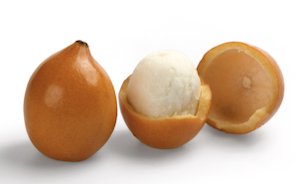
The Achacha, known in Bolivia as the Achachairú, (meaning
honey kiss in Guaraní, a local native language) is highly prized,
having been cultivated for centuries in domestic orchards in the
tropical lowlands of the Amazon Basin. It has not been commercialised
internationally until recently. 3
The
world’s first commercial plantation was established in 2003 in North
Queensland, Australia, with fruit appearing in 2009. Each year the fruit’s
popularity is increasing both within Australia and beyond – in season
it finds its way from Palm Creek Plantation to Europe, the Middle East,
Asia and Canada. With its sweet, tangy, refreshing taste it adds a new
flavour to the fruit bowl. 3
Its journey to the
other side of the world comes courtesy of Bruce and Helen Hill who were
intrigued by the enthusiasm of their Bolivian friends for the fruit. 1
On
the Bruce Highway, midway between Townsville and Ayr, North Queensland,
Australia. Palm Creek Plantation is part of and at the northern edge of
the Burdekin Irrigation Scheme. The Burdekin Shire district, a district
“built of liquid gold” – so called because the region is situated on a
vast natural underground aquifer which is replenished with water from
the mighty Burdekin River. 5
The plantation is the first and believed to be the only large scale commercial Achacha operation in the world. 2
As
the species had not been grown in Australia or elsewhere, even Bolivia,
on a large scale before, a significant amount of research and
development was invested into finding suitable growing mediums,
fertilisers, soils, pruning techniques, water regimes and so on. 2
Since 2012, only organic and biodynamic methods have been used, with significant nutritional and cost success.
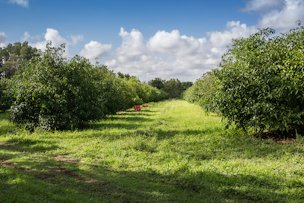
Fig. 1 
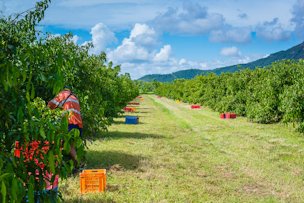
Fig. 2 
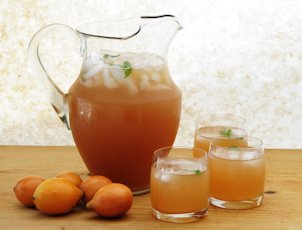
Fig. 3 
"The
drink has become very popular and indicates that even though the amount
of pulp in each fruit is limited, the skin can be used. Note that it is
not a juice – the skin is left in water for a few days and becomes an
extremely healthy “tea”." Bruce Hill, manager Achacha Fruit
Plantations
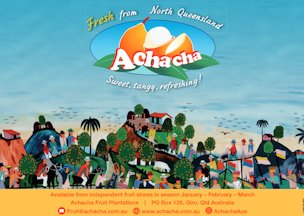
Fig. 4 
Achacha – The fruit That Tastes Like Sorbet, The Sydney Morning Herald pdf
"A new owner is needed to take the reins of this abundant 101-hectare (250 acres) Queensland plantation." The Sydney Morning Herald
What is Achacha? pdf
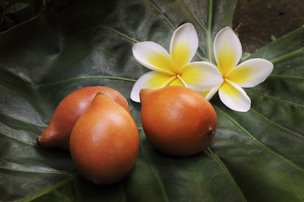
Fig. 5 
Delicious, refreshing, exotic, tangy, effervescent . . . no wonder the name translates as “honey kiss”! 4
Back to
Achachairu Page
|
|
Bibliography
1 "The Age." Achacha.com.au, www.achacha.com.au/the-age/. Accessed 10 Dec. 2023.
2 "Achacha Nominated for Fruit Logistica Innovation Award 2012." Achacha Fruit Group – Overview, www.achacha.com.au//wp-content/uploads/OrganisationProfile3-120202.pdf. Accessed 10 Dec. 2023.
3 "The Achacha Origin." Achacha.com.au, www.achacha.com.au. Accessed 10 Dec. 2023.
4 "Taste." Achacha.com.au, www.achacha.com.au/about/. Accessed 10 Dec. 2023.
5 "The Plantation." Achacha.com.au, www.achacha.com.au/about/#plantation. Accessed 10 Dec. 2023.
Published 12 Dec. 2023 LR
|







